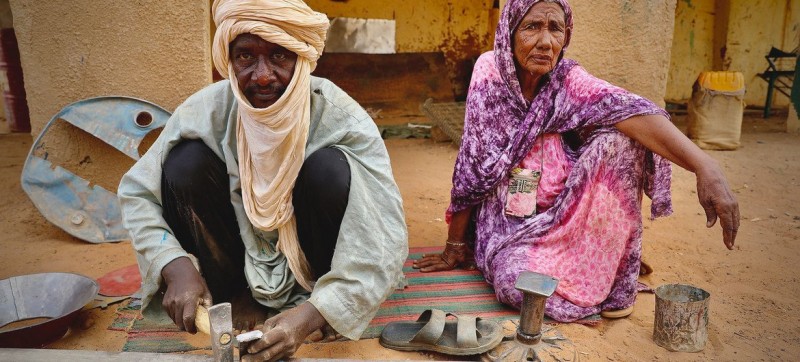Contents
Menaka in the northeast of Mali has been experiencing increasing insecurity as a result of attacks by terrorist groups and other armed groups. Responses to terrorism must be anchored in the rule of law, human rights, and gender equality to ensure their effectiveness, Secretary-General António Guterres told a UN-backed counter-terrorism meeting that opened in Málaga, Spain, on Tuesday. “As a moral duty, a legal obligation, and a strategic imperative – let’s put human rights where they belong: Front and centre in the fight against terror,” Mr. Guterres said in a video message to the High-Level International conference on Human Rights, Civil Society and Counter-Terrorism.
The two-day event is taking place against the backdrop of the growing threat of terrorism across the globe, and the resulting increase in related legislation and policies.
Assault on human rights
During the conference, governments, international organizations, civil society and human rights defenders will examine how to formulate terrorism responses that comply with human rights and the rule of law, and ensure meaningful participation of civil society in counter-terrorism efforts.
“This gathering reflects a central truth. Terrorism is not only an attack on innocent people. It represents an all-out assault on human rights,” said the Secretary-General.
The threat is growing and global, he added, listing examples such as the continued expansion of Da’esh and Al-Qaeda in Africa, and resurgent terrorism in Afghanistan.
The UN chief spoke of how extremist groups are targeting women and girls with gender-based violence, including sexual violence, while terrorists are also using technology to “spread and export lies, hatred and division at the touch of a button.”
Meanwhile, xenophobia, racism and cultural and religious intolerance are accelerating.
Reaffirm core values
Mr. Guterres warned that at the same time, global responses to terrorism can make things worse.
“In the name of security, humanitarian aid is often blocked – increasing human suffering. Civil society and human rights defenders are silenced – particularly women. And survivors of terrorism and violence are left without the support and access to justice they need to rebuild their lives,” he said.
The Secretary-General called for reaffirming commitment to core values, including by investing in health, education, protection, gender equality, and justice systems that are accessible to all people.
This must also include safeguarding humanitarian action, respecting international law and “opening the door to civil society – and especially women – to meaningfully engage with counter-terrorism efforts.”
Ensuring long-term efforts
The high-level conference is jointly organized by the UN Office of Counter-Terrorism (UNOCT) and Spain.
In his opening remarks, Mr. Vladimir Voronkov, UN Under-Secretary-General for Counter-Terrorism, stressed that “countering terrorism helps protect human rights, but only if human rights are protected while countering terrorism.”
Moreover, he added the violation or abuse of human rights only plays into terrorists’ hands, as they seek to provoke heavy-handed and indiscriminate responses from security forces.
“Terrorists do this with the aim of undermining public confidence in the ability of governments to protect their own citizens. That is why a human rights-based approach is not aimed at challenging or frustrating counterterrorism initiatives,” he said.
“On the contrary, it’s essential to ensure effective, long-term, and sustainable counter-terrorism efforts.”
Global strategy
The conference follows a virtual dialogue held last year with human rights and civil society partners, also convened by the UNOCT and Spain.
Several thematic sessions will focus on issues such as human rights, the rule of law and principled humanitarian action in the context of counter-terrorism efforts; and support for victims and survivors of terrorism.
Prior to the opening, a workshop and six side events were held to accelerate momentum and commitment towards implementing the UN Global Counter-Terrorism Strategy in a balanced manner.
The strategy, adopted by the UN General Assembly in 2006, includes measures that range from strengthening State capacity to counter terrorist threats to and better coordinating the UN’s System’s counter-terrorism activities.
The Foreign Minister of Spain, José Manuel Albares Bueno, who also addressed the opening ceremony, expressed high hopes for the conference.
“The diversity of the themes is a true reflection of the comprehensive nature of the Global Counter-Terrorism Strategy in its seventh review, which was co-facilitated by Spain and adopted by consensus by the General Assembly in June last year,” he said.




Comments are closed, but trackbacks and pingbacks are open.